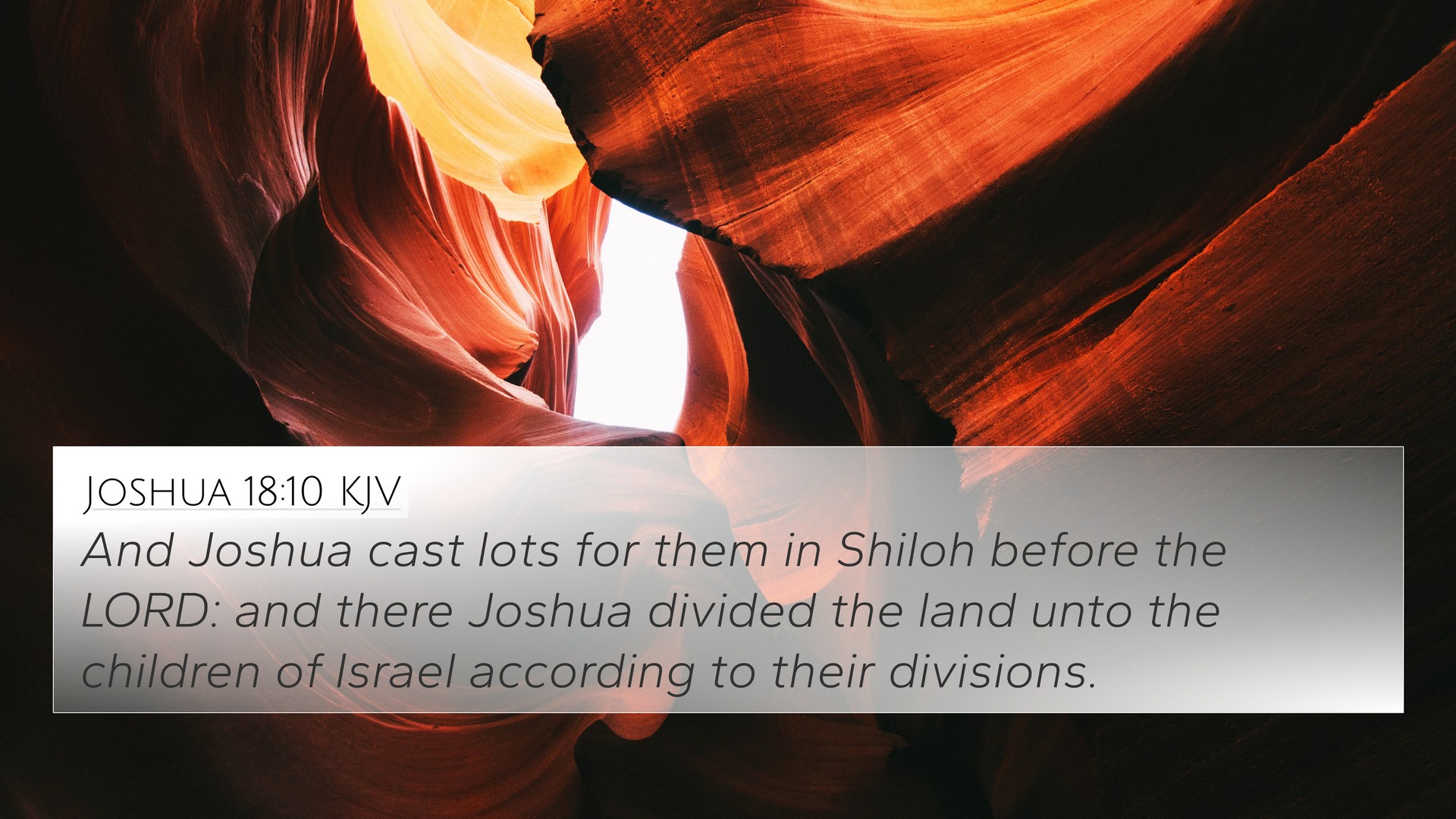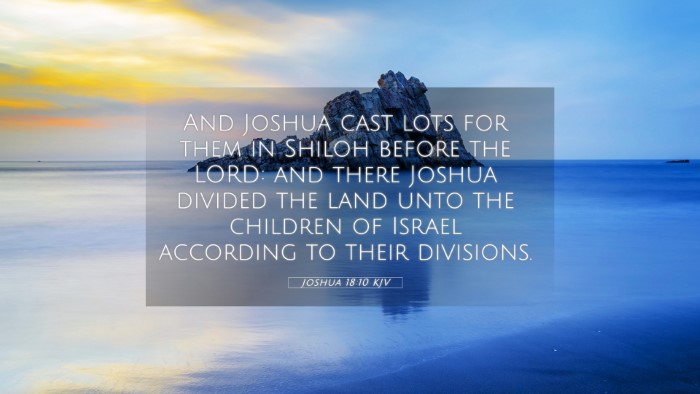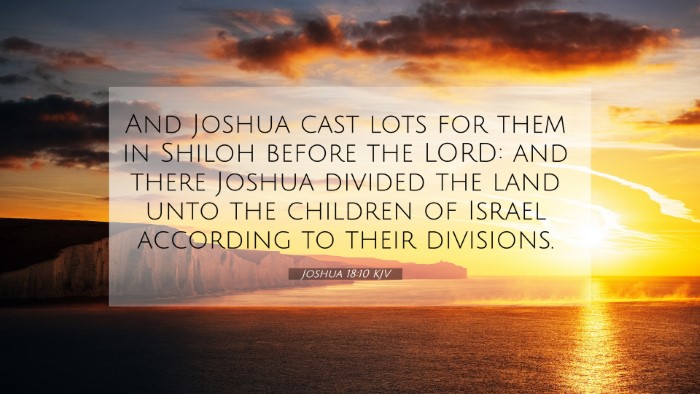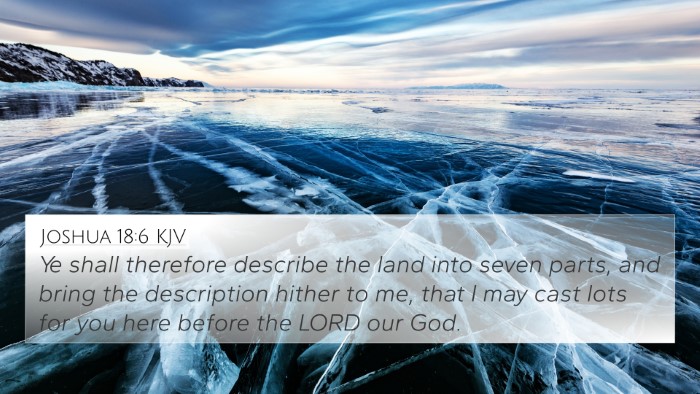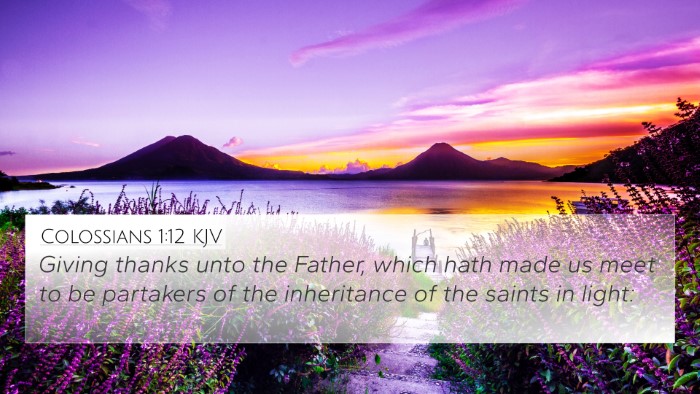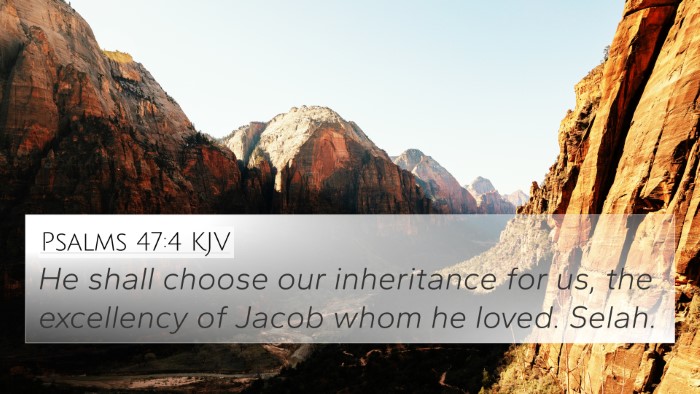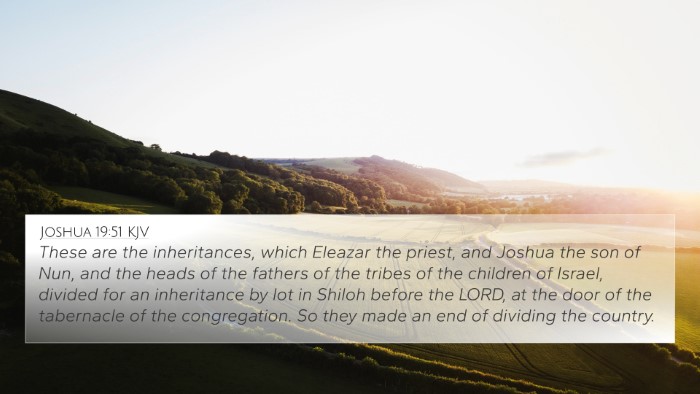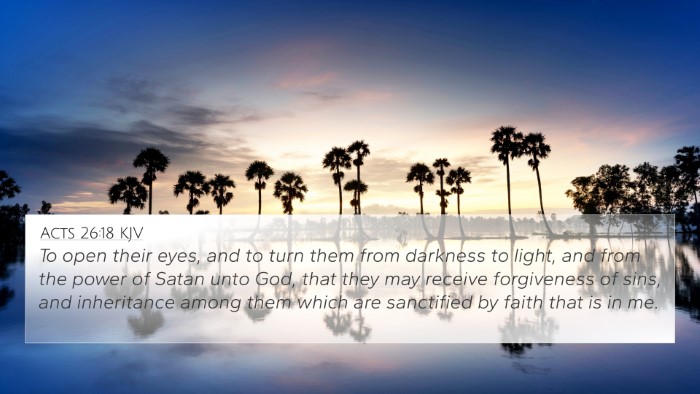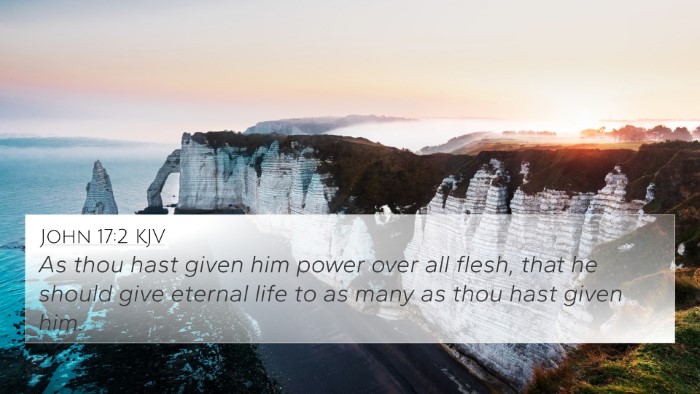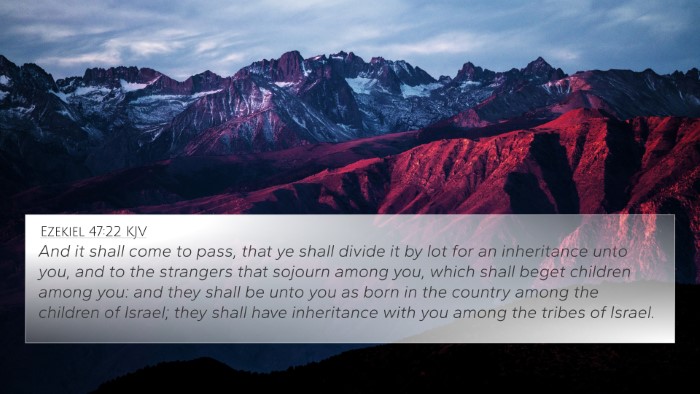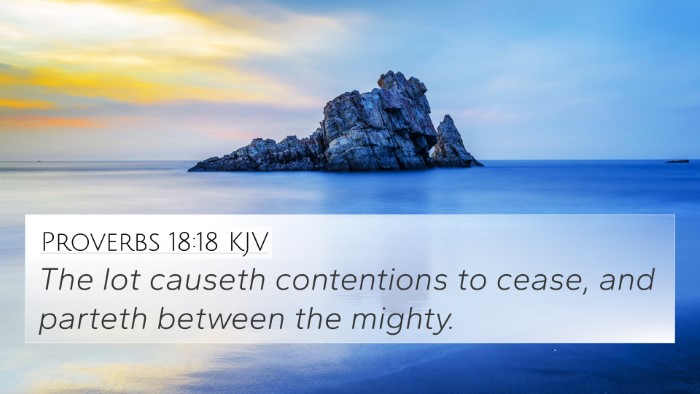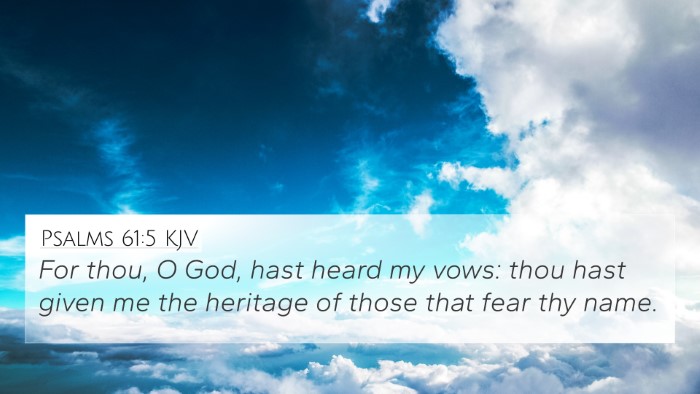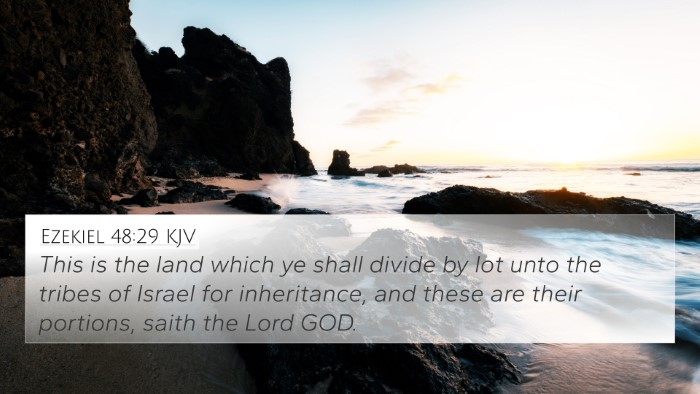Understanding Joshua 18:10
Verse: "And Joshua cast lots for them in Shiloh before the Lord; and there Joshua divided the land unto the children of Israel according to their divisions." - Joshua 18:10
Summary of Meaning
This verse describes a significant moment in Israel's history where Joshua, the leader after Moses, is tasked with dividing the Promised Land among the twelve tribes of Israel. Casting lots is a method of decision-making that seeks divine guidance, symbolizing reliance on God for the distribution of territory.
Insights from Public Domain Commentaries
- Matthew Henry's Commentary: Henry emphasizes the importance of divine providence in the division of the land. He notes that the method of casting lots reflects the belief that God controls the outcomes, ensuring fairness and order in the land allocation process.
- Albert Barnes' Notes: Barnes points out that Shiloh was a central place for worship, indicating the spiritual significance of the land division. He highlights that the lot casting was not a random act but rather a solemn act of seeking God's will for His people.
- Adam Clarke's Commentary: Clarke provides an analysis of the geopolitical implications of the division. He explains the tribes' locations were significantly strategic, as it affected their future, military strength, and agricultural potential, essential for the nation's survival.
Significant Themes in Joshua 18:10
This passage highlights several recurring themes in the Bible:
- Divine Guidance: The casting of lots symbolizes seeking God's direction, which is a deliberate act throughout the Bible, as seen in Acts 1:26 when the apostles chose Matthias.
- Covenant Fulfillment: The division represents the fulfillment of God's promise to Abraham, Isaac, and Jacob regarding the land, reflecting themes of promise and provision.
- Community and Unity: The need for the tribes to work together in allocating the land reflects the unity essential for Israel's national identity and survival.
Cross-References for Joshua 18:10
This verse connects with several other Scripture passages through various themes, here are some noteworthy cross-references:
- Numbers 26:55-56: Discusses God's command regarding dividing the land among the tribes.
- Joshua 1:6-7: God encourages Joshua to be strong and courageous in leading the people into the Promised Land.
- Deuteronomy 31:7-8: Moses' commissioning of Joshua highlights God's chosen leadership for the people.
- Proverbs 16:33: "The lot is cast into the lap, but the whole disposing thereof is of the Lord," emphasizing divine control over the outcome.
- Acts 1:24-26: Reflects the practice of casting lots for divine guidance in decisions made by leaders of the early church.
- Joshua 18:1: Shows the establishment of the tabernacle in Shiloh, emphasizing its significance as the central location for worship.
- Jeremiah 31:1: God’s promise of restoration for Israel also connects with the significance of their land.
Significance of Cross-Referencing
Engaging in cross-referencing is an essential tool for understanding Scripture as it reveals the interconnectedness of biblical texts:
- By studying cross-references like Numbers 26 and Joshua 1, readers can establish a broader context regarding land allocation themes present throughout the Torah and beyond.
- Thematic connections can be identified, such as God's faithfulness and guidance, which recurs from the Old through the New Testament.
- Cross-references enhance Bible study techniques, encouraging deeper engagement with the texts and their implications.
Conclusion
Joshua 18:10 encapsulates an important transitional moment for Israel, guiding us through the significance of trusting in divine guidance when making critical decisions. Understanding this verse in light of its broader context and cross-references enhances our comprehension of God's covenant and active role in history. Through meticulous cross-referencing and exploration, believers can deepen their insights and applications of scriptural truths.
Tools for Bible Cross-Referencing
To aid in your study of cross-referencing and understanding biblical texts, consider exploring:
- Bible concordances for comprehensive keyword searches.
- Digital tools or apps that provide cross-reference guides.
- Study Bibles that include notes, references, and thematic connections.
- Guides on how to use Bible cross-references effectively in your studies.
